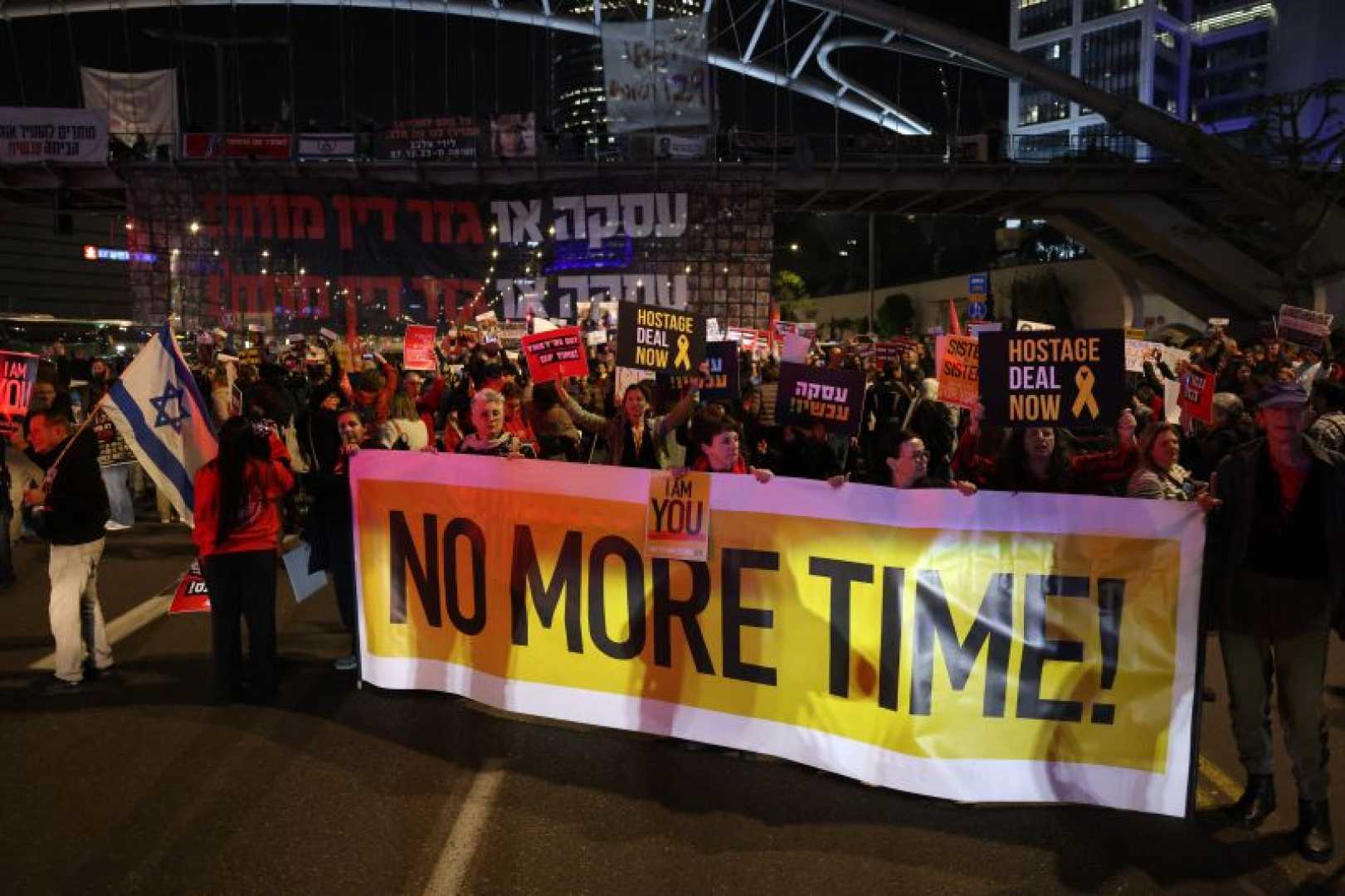World
Hostage Release in Gaza Marks Turning Point for Families and Negotiators

JERUSALEM — In a significant development in the ongoing conflict, 25 hostages held by Hamas have been released as part of a ceasefire agreement with Israel that commenced on January 19, 2025. Additionally, the remains of eight other hostages were handed over, marking a pivotal moment in the ongoing strife in the region.
The first phase of the ceasefire deal, which spans six weeks, involved the release of roughly 1,900 Palestinian prisoners from Israeli jails in exchange for the hostages. This agreement, which has captured international attention, aims to foster dialogue and reduce violence in the area.
The latest hostages who were freed include Eliya Cohen, Omer Shem Tov, and Omer Wenkert, who were released in Nuseirat, central Gaza, while others such as Avera Mengistu and Tal Shoham emerged in Rafah, southern Gaza. The final hostage, Hisham al-Sayed, was handed over to the Red Cross in Gaza City on February 22. According to the Israeli government, negotiations for the second phase are yet to commence.
Among the released hostages, Eliya Cohen shared his harrowing experience of being taken captive during the attack on the Supernova music festival on October 7, 2023. He and his girlfriend, Ziv Abud, sought refuge in a bomb shelter but were discovered by Hamas gunmen. While Eliya was taken, Ziv managed to escape. After his release, Cohen expressed relief but also acknowledged the lasting shadow of his ordeal.
Omer Shem Tov recounted that he escaped the festival but was captured while attempting to rescue friends. His family revealed that he spent a significant portion of his captivity alone in a tunnel. Tal Shoham’s situation was similarly dire; he was taken from Kibbutz Be'eri along with his family, most of whom were released during a previous truce.
Prior to the release of hostages, families had been anxiously awaiting news of their loved ones. In an emotional interview, Eli Sharabi, one of the freed captives, disclosed that he had been unaware of the tragic fate of his family until his release, when he learned that his wife and daughters had been killed during the attack.
“It’s clear that the worst has happened,” he said, visibly shaken. He described the dire conditions in captivity, where he and others received minimal food. “We’d cut pitas into four pieces and pretend it was enough,” Sharabi remarked. “You dream of freedom… of opening a fridge and seeing food.”
The release of the hostages comes as international negotiators continue to press for further concessions and a lasting peace agreement. However, many families remain hopeful yet concerned as tens of hostages still remain in captivity.
Prime Minister Benjamin Netanyahu‘s office confirmed that negotiations are ongoing, with a focus on ensuring the safety of remaining hostages. The gravity of this situation is underscored by the fact that approximately 59 hostages are still believed to be in Gaza, and the threat of additional violence looms as discussions on further agreements unfold.
As the families of the released hostages celebrate their reunion, the pain of those still in captivity resonates throughout the community, reminding observers that the complexities of humanitarian crises demand ongoing attention and diplomatic effort.












